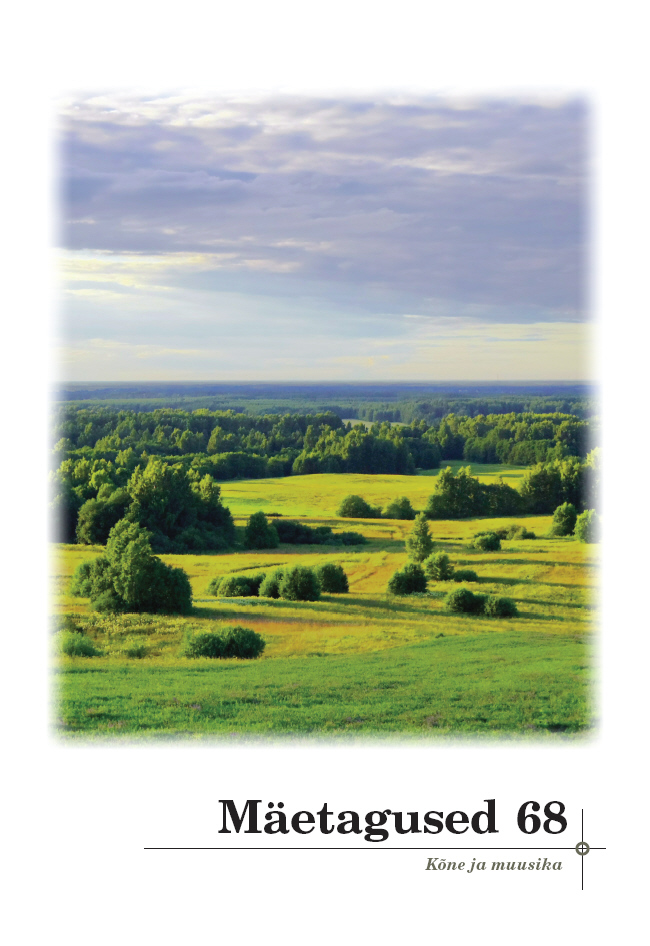Varieeruva vältega sõnad: häälduseelistused ja määramisraskused
Words with variable quantity degrees: Auditory assessment and pronunciation preferences
Author(s): Mari-Liis Kalvik, Liisi PiitsSubject(s): Customs / Folklore, Theoretical Linguistics, Applied Linguistics, Cultural Anthropology / Ethnology, Culture and social structure
Published by: Eesti Kirjandusmuuseum
Keywords: auditory assessment; Estonian; phonological variation; reading experiment; variation of quantity degrees;
Summary/Abstract: For the studies of quantity degrees, words were chosen which the Dictionary of Standard Estonian (ÕS 2013) lists as being pronounced with both the second and third quantity degree. As Estonian text-to-speech synthesis relies in its determination of pronunciation on this dictionary and automatic text analysis cannot handle multiple outputs, the aim is to find out which variant is more common among language users, to give the preference to one of the pronunciation variants. This study is based on a reading experiment conducted with 50 informants (36 women and 14 men), in which each informant read 52 sentences aloud. These sentences contained 49 target words, i.e., words of variable quantity degrees; in total, the study yielded 2438 pronunciation instances to examine. Each pronunciation instance got an audio assessment made by 2 listeners. If their quantity degree assessment were conflicted (one listener gave second and another gave third quantity assessment) the third listener was then ultimate decider. There are two main questions we would like to answer. First of all, we are interested in finding out how much an auditory assessment depends on listeners and how much the estimations are changed during the evaluation. Finding answers to these questions will help us to reach the main goal of our study: to find out the main tendencies in how the words with variable quantity degrees are pronounced. Comparing the auditory assessment of the first and second listener, it turned out that of the 2438 pronunciations, the assessments of two listeners differed in 375 cases (15% of all the pronunciation instances). In case of inconsistencies, we gave the first listener the opportunity to make a new assessment. It turned out that the first estimation was changed on average in 50% of the instances. These 375 cases in which the first and second listener’s quantity degree assessments were conflicted were in the end changed by 72% of cases. This means that for all the 2438 pronunciations, the listeners changed their first assessment by an average of 12% of the cases. On the basis of the informants’ pronunciation, the words were grouped into three categories: the second quantity degree (words in which pronunciation with the second quantity degree dominated), variable quantity degree (where neither the second nor the third quantity degree accounted for more than 2/3 of all pronunciations), and the third quantity degree (words in which pronunciation with the third quantity degree dominated). Based on the auditory assessment, 20 words fell into the second quantity degree group, in which words were pronounced predominantly with the second quantity degree. These words were mullu ‘yester-year’, alles ‘only’, teisal ‘elsewhere’, ilma ‘without’, toimekas ‘expeditious’, soodus ‘favourable’, tallinlane ‘citizen of Tallinn’, andekas ‘talented’, rõõmus ‘jolly’, kirju ‘varicolored’, hilja ‘late’, võimekas ‘capable’, maitsekas ‘tasteful’, kiire ‘fast’, täiuslik ‘perfect’, võimetu ‘incapable’, augustis ‘in August’, eile ‘yesterday’, ungarlane ‘Hungarian’, politseinik ‘policeman’. Listing starts with a word which has the largest amount of second quantity degree pronunciation instances (100% of readers pronounced mullu as a word with the second quantity degree) and ends with the smallest amount of second quantity degree pronunciation instances (72% of readers pronounced politseinik as a word with the second quantity degree). The third quantity degree group contained 22 words. These words are saatanlik ‘satanic’, saatuslik ‘fateful’, peenelt ‘finely’, kuulus ‘famous’, rahvuslik ‘national’, äärmuslik ‘extreme’, looduslik ‘natural’, jaanuar ‘January’, kangelane ‘hero’, pealik ‘chief’, nooruslik ‘youthful’, haiguslik ‘diseaseful’, ahne ‘greedy’, ihne ‘penny-pinching’, kaine ‘sober’, terve ‘healthy’, kärme ‘fast’, ammu ‘erst‘, aula ‘hall’, nõiduslik ‘bewitching’, piknikuga ‘with picnic’, hirmus ‘horrible’. The variable quantity degree group contained 7 words: ilmetu ‘inexpressive’, kaitsetu ‘defenceless’, meetod ‘method’, ümbrikus ‘in envelope’, keiserlik ‘imperial’, teaduslik ‘scientific’, enne ‘before’.
Journal: Mäetagused. Hüperajakiri
- Issue Year: 2017
- Issue No: 68
- Page Range: 83-100
- Page Count: 18
- Language: Estonian

